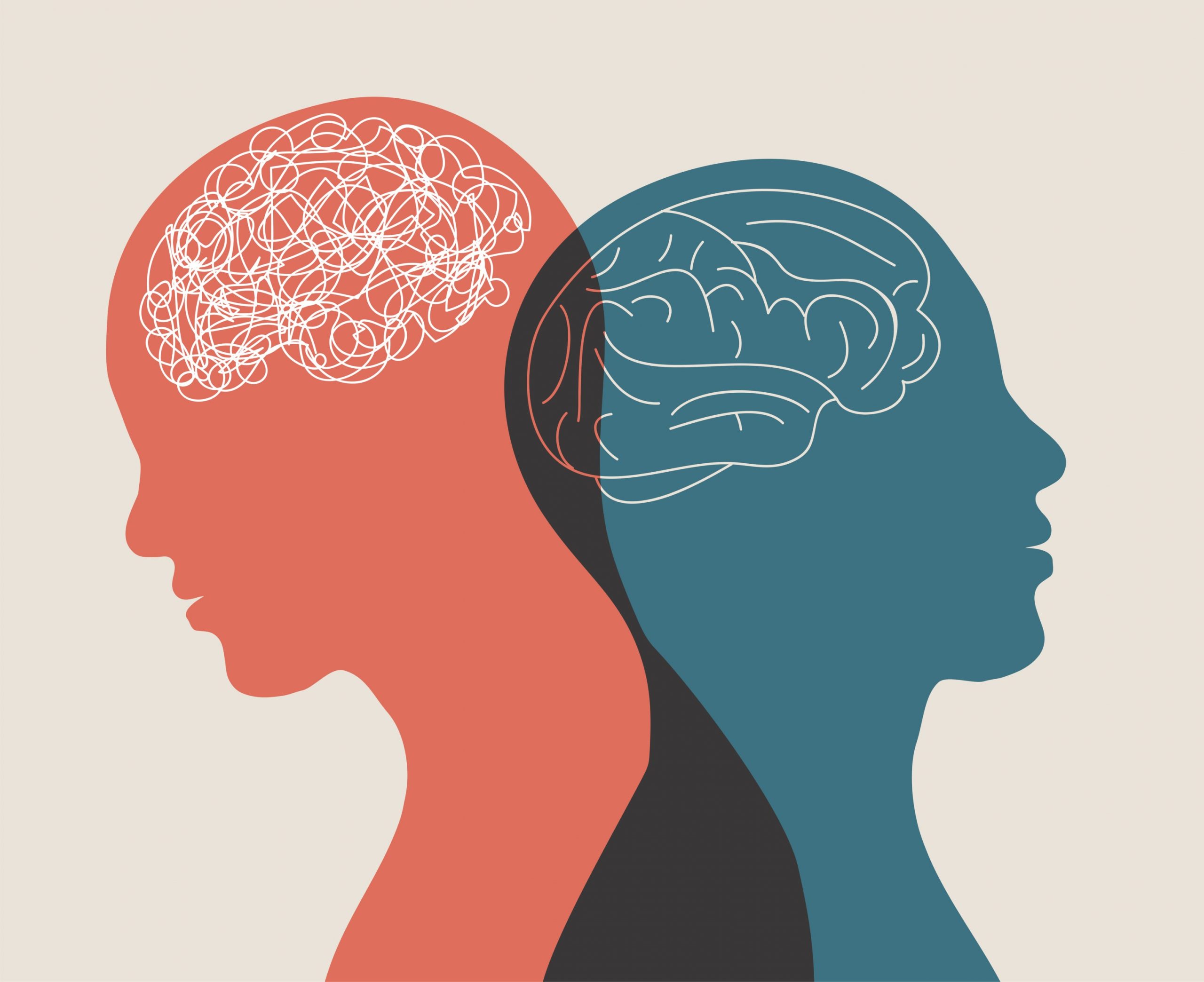How a Rainy Night and Beyoncé Kept DC Metro Running
August 9, 2023
In the captivating world of music and entertainment, artists wield a unique power that extends beyond the boundaries of the stage, leaving an indelible mark on the hearts and minds…

May is mental health awareness month, and mental health is an important feature of our health and well-being. It is essential to our ability to function in daily life, cope with stress and challenges, and form meaningful relationships.
Good mental health gives us a sense of purpose, joy, and fulfillment in our lives. However, poor mental health can negatively impact our lives, leading to a range of physical and emotional problems.
Mental health is affected by a range of factors, including our emotional, psychological, and social well-being. It is a dynamic state that can fluctuate from time to time, depending on various factors such as genetics, environment, lifestyle, and life events.
Mental health problems can arise for various reasons, including:
● Trauma
● Abuse
● Chronic stress
● Genetic predisposition
● Chemical imbalances in the brain
Mental health issues affect people of all ages, races, and genders. Mental health disorders are highly prevalent globally, with an estimated 1 in 4 people affected by mental or neurological disorders in their lives.
Mental health disorders can manifest in different ways, such as through mood disorders such as bipolar disorder and depression, and anxiety disorders. In addition, psychotic disorders such as schizophrenia and substance abuse disorders also manifest as mental health disorders.
When mental health issue is not treated, it can lead to bad effects, such as, decreased work performance, bad relationships, social isolation, physical health problems, and even suicide.
Mental health disorders are also associated with increased morbidity and mortality rates and a higher risk of developing chronic medical conditions such as heart disease, diabetes, and obesity.
Recognizing the importance of mental health is critical to promoting overall health and well-being. Here are some of the reasons why mental health is important:
Mental health and physical health are interconnected. Poor mental health can largely affect our physical health and lead to physical problems such as:
● Heart disease
● High blood pressure
● Obesity
It can also lead to poor lifestyle choices such as smoking, alcohol abuse, and unhealthy eating habits, further leading to physical health problems.
Conversely, good mental health can help improve physical health outcomes and reduce the risk of developing chronic medical conditions.

Our mental health affects how we interact with others and form relationships. Mental health problems can negatively impact our ability to:
● Communicate effectively
● Form meaningful relationships
● Maintain healthy social connections
Conversely, good mental health can help us form positive relationships, build social support networks, and enhance our sense of belonging.
Mental health can impact work performance, productivity, and job satisfaction. Mental health problems can lead to:
● Decreased concentration
● Decreased motivation
● Decreased productivity
This can affect job performance and lead to reduced job satisfaction.
On the other hand, good mental health can lead to increased productivity, job satisfaction, and improved work performance.
Good mental health can also enhance creativity and innovation. For example, mental health disorders such as bipolar disorder and schizophrenia have been linked to increased creativity and divergent thinking.
Additionally, good mental health can help individuals think more creatively and generate new ideas. By prioritizing mental health and taking steps to maintain it, individuals can tap into their creative potential and enhance their ability to think outside the box.
Good mental health is essential to living a fulfilling life. It allows us to experience a sense of purpose, joy, and fulfillment in our lives.
Mental health problems can negatively impact our quality of life, leading to decreased enjoyment and overall satisfaction.
Poor mental health can lead to physical health problems, which can increase healthcare costs. For example, anxiety and stress can lead to:
● High blood pressure
● Heart disease
● Digestive issues
Depression and other mental health disorders can weaken the immunity and increase the risk of developing chronic illnesses. Prioritize mental health and seek treatment when necessary. This will reduce the risk of developing physical health problems and, in turn, reduce healthcare costs.
Early intervention and treatment of mental health problems can also prevent more severe and costly health problems from developing.
Mental health problems not only affect individuals but also significantly impact society as a whole. Mental health problems can lead to increased healthcare costs, decreased productivity, and reduced economic growth.
It can also lead to increased homelessness, crime rates, and substance abuse, which can further impact society. Families in the society are also affected if one of them has a mental health issue. This can affect everyone in the family both financially, emotionally, and even economically.

Resilience is the potential to bounce back from challenging situations and adapt to change. Good mental health can help individuals build resilience, which is crucial for coping with the ups and downs of life.
Individuals with better mental health are well-equipped to handle stress, overcome setbacks, and navigate difficult situations. They can develop a more positive outlook and greater control over their lives.
However, poor mental health can lead to decreased resilience and an increased risk of developing mental health problems
Given the importance of mental health, it is critical to prioritize it and take steps to maintain good mental health. Here are some ways to improve mental health;
If you are having mental health problems, seek professional help. Mental health professionals such as psychologists, psychiatrists, and counselors are fully trained to diagnose and treat mental health disorders.
They can help develop a plan that meets your specific needs and goals. Looking for professional help is not a sign of weakness, but it is a sign of strength and self-care.
Self-care is essential to maintaining good mental health. Participate in activities that bring you joy and relaxation, such as meditation, yoga, or hobbies. Ensure you get adequate sleep, eat a healthy diet, and stay physically active.
Take breaks when needed, and set boundaries to prevent burnout. Take vacations to enjoy yourself when you feel exhausted.
Social support is essential to good mental health. Connect with friends and family members, and engage in activities that involve social interaction, such as joining a club or volunteering.
Join a support group where you can interact with others who share the same experiences and struggles. Form cooking, football, and even swimming clubs and enjoy the interaction.
Stress is part of life for everyone. But excessive stress can negatively impact mental health. Learn healthy coping mechanisms to manage stress, such as deep breathing, exercise, and mindfulness. Practicing yoga and swimming are also great ways to steam off stress.
Identify the source of stress in your life and take steps to manage them, such as delegating tasks or saying no to additional responsibilities.
Substance abuse can worsen mental health problems and lead to addiction. Substance abuse deteriorates your health, immunity, and even your mind. Protect yourself from substance abuse at all costs.
Avoid using drugs and alcohol as a coping mechanism, and seek help if you are struggling with addiction.
Gratitude is an excellent tool that can improve mental health. Focus on what you are grateful for, and practice expressing gratitude regularly. This can help you to shift focus away from negative thoughts and promote a more positive outlook.
You will have more energy and be productive if there is nothing holding you back. Try it! It works magic!

Learn about mental health and how to maintain good mental health. There are many materials, from journals, and videos to books written about mental health. Educate yourself on the signs and symptoms of mental health problems, and learn about available resources and treatments.
This can help you better understand your mental health and help others who may be struggling. If you are well educated on the signs and symptoms of stress, it becomes easier to handle stress and to identify if one of your family members is affected.
Prioritizing mental health is important for living a happy, healthy, and fulfilling life. Whether it’s through therapy, self-care, or medication, taking steps to maintain good mental health can positively impact every aspect of your life.
Remember, mental health is not something to be ashamed of or hidden away. You can achieve your full potential and fulfill your goals by prioritizing your mental well-being and seeking support when needed. So let’s break the stigma, prioritize our mental health, and live our best lives!